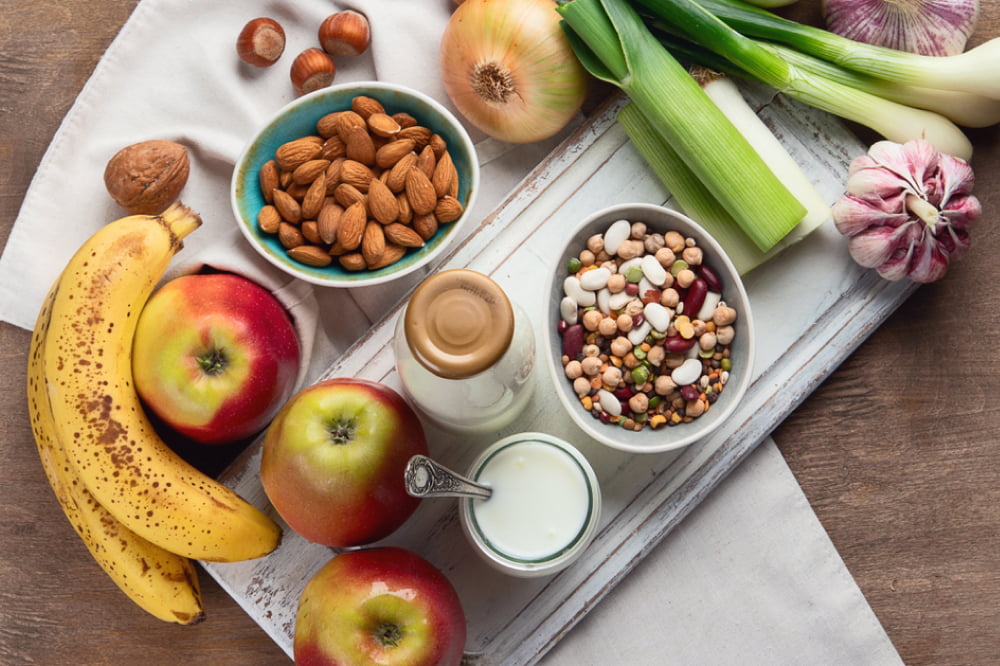
Top probiotic-rich foods to relieve constipation
Constipation is a common gastrointestinal issue that can interfere with daily life and lead to health concerns if left untreated. While there are various methods to alleviate this condition, one emerging approach gaining attention is the use of probiotics. These beneficial microorganisms offer a natural and effective way to regulate digestion, promote gut health, and restore digestive harmony. Below are some key strains of probiotics that have shown promise in relieving constipation.
Key probiotics for constipation relief
The key strains of probiotics have shown significant potential for alleviating constipation. These good bacteria work by increasing stool frequency and softening stool consistency. They are as follows:
- Bifidobacterium lactis: They are found in the gastrointestinal tract and are known to regulate gut transit time, thus reducing the likelihood of constipation.
- Lactobacillus plantarum (L. plantarum): These are known to help break down food and better absorb nutrients in the body. They are usually recommended for those experiencing eczema, irritable bowel syndrome (IBS), or ulcerative colitis.
- Bifidobacterium breve (B. breve): They help with better digestion, prevent inflammation, and increase stool frequency.
How probiotics help relieve constipation
Here is how probiotics work:
- Stool softening: Probiotics help soften stools and prevent them from becoming hard and difficult to pass.
- Improved gut motility: These friendly bacteria stimulate muscle contractions in the intestines, promoting regular bowel movements and reducing the likelihood of constipation.
- Balancing gut microbiota: An imbalance in gut bacteria can cause constipation. Probiotics help restore harmony by fostering the growth of beneficial bacteria, which optimizes digestion and supports the healthy breakdown of food, aiding in more efficient elimination.
- Enhanced water absorption: Certain strains increase water retention in the colon, preventing excessive water absorption from the stool and ensuring a softer consistency.
Best probiotic foods for constipation and gut health
Probiotics can be found naturally in the body, primarily in the gastrointestinal tract and in certain foods, especially non-dairy fermented foods. Here are some of the best probiotic foods that one can include in one’s daily intake to boost gut health and manage constipation:
- Tempeh
Tempeh is made by fermenting cooked soybeans with a specific type of fungus. This fermentation process not only enhances the nutritional profile of soybeans but also introduces probiotic microorganisms. In addition, it boosts the body’s capability of absorbing minerals like iron and zinc. Tempeh is an excellent source of plant-based protein and can be used in various dishes and even as a substitute for meat. - Kimchi
A traditional Korean side dish, kimchi has gained popularity in the rest of the world due to its many health benefits. This fermented probiotic superfood is made primarily of cabbage and a mix of herbs and spices, including chili flakes, ginger, garlic, salt, and scallions. Kimchi contains lactobacillus that aids digestion and other essential nutrients like vitamin K, iron, and B2. - Yogurt
Yogurt is one of the most popular sources of live probiotics. It is made from fermented milk and provides many health benefits. Apart from boosting gut health, it also strengthens bones, reduces the risk of diabetes and colon cancer, and improves heart health. Before buying yogurt in stores, however, one is advised to check for labels with added sugar. Opting for plain yogurt without added sugars and artificial flavors is recommended for maximum benefits. - Kefir
Kefir is a fermented dairy product that resembles yogurt but has a thinner consistency. Made from fermenting milk with kefir grains, it has gut-friendly bacteria and can be a good alternative to yogurt. Since it is dairy-free, it might be especially beneficial for lactose-intolerant people. - Fermented pickles
Pickles that have undergone natural fermentation are considered probiotic superfoods. While many commercial pickles are made using vinegar, the fermentation process involves the use of salt and water, allowing beneficial bacteria to thrive. These bacteria transform the cucumbers into pickles and contribute to gut health. Having said that, one should read the labels before buying store-bought pickles to ensure they do not contain vinegar and preservatives. The best way is to make one’s own pickle with fresh herbs and cucumbers at home. - Sauerkraut
Sauerkraut is a traditional food made from finely chopped cabbage that’s been salted and left to ferment. During fermentation, beneficial bacteria transform the cabbage into sauerkraut, which is not only delicious with a salty and sour taste but also loaded with probiotics. Rich in fiber, iron, potassium, and vitamins C and K, this food can be eaten as a side dish or as a sausage topping.
Sometimes, one may need targeted strains of beneficial bacteria to address specific digestive concerns and provide convenient support for one’s gut. Probiotic blends are usually formulated to improve intestinal motility and can be used for specific problems like bloating and constipation. One should note that before incorporating any new probiotics into one’s routine, one must consult with a healthcare professional to ensure they are suitable for one’s individual needs. This is especially recommended for those who have underlying health concerns.




